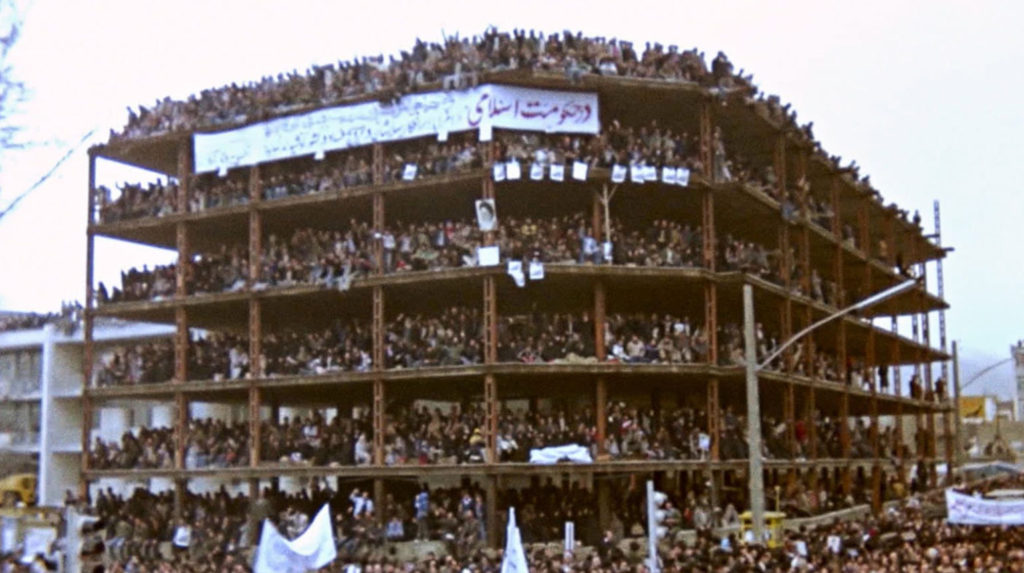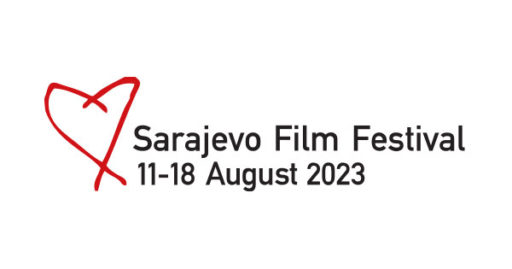Sarajevo review: Between Revolutions (2023)
Sarajevo Film Festival
Documentary Competition

All revolutions have some inherent vices woven into their very fabric. They tend to betray the ideals and the idealists behind them and to get hijacked by new elites who pervert them by turning them into money- and power-grabbing schemes. Two revolutions, two idealists, two friends, two women and the letters they exchanged stand in the centre of Vlad Petri’s Between Revolutions, the filmmaker’s second feature-length documentary (after his 2014 title Where Are You Bucharest).
Between Revolutions premiered at Berlinale’s Forum section in February, embarking on the tour of festivals, usually specialized ones, shortly afterwards. We finally caught it at Sarajevo where it competed at the documentary slot.
As the opening title card informs us, the Romanian student Maria and her Iranian fellow Zahra met during studies at the Bucharest University of Medicine in the late 70s. The disclaimer stresses that the students from the Middle East were not uncommon at Romanian universities during the communist times. At one point in 1978, just before starting her final year, Zahra decided to go back to her own country and finish studies there, sensing that something is cooking in the air. The two remained in touch ever since through the letters they kept exchanging.
Zahra took part in the Iranian Revolution of 1979 as the liberal, left-leaning student, but other forces started dominating and controlling the narrative, taking the new society from the corrupted, imperialist direction into even more oppressive fundamentalist one. Alongside with other intellectuals, liberals, leftists and women who did not enthusiastically support the mandatory wearing of hijab, she became persecuted by the new, Islamist regime.

Maria did not fare much better either: for keeping the correspondence with the foreign citizen, she and her family were persecuted by the communist dictatorial regime: they were spied on by the secret service and Maria was forced to take a post in a far-away provincial clinic after she graduated, having hard time to return to her home town of Bucharest. Ten years later, she also took part in the revolution that toppled the dictator, only to end up disappointed by the outcome of the newly-gained “freedom” that meant getting rich for the chosen few and sinking deeper into the poverty for all the others.
The more personal and lyrical than factual narrative in form of letters is illustrated with the pristine, rarely seen archival material both from Iran and Romania in which the revolutionary and post-revolutionary turmoil (including also the war that ensued, leaving Zahra’s destiny uncertain) in one country is contrasted with the oppressive drabness in the other. Accompanied by music (also from the archival sources, with some rare inserts of original score composed by Filip Sertić) and the striking sound design by Filip Mureşan and Vlad Voinescu, edited to the compact format of 69 minutes by Dragoş Apetri, Cătălin Crisuţiu and the filmmaker himself, the mélange leaves a strong, lasting impression both on the intellectual and emotional level.
However, there is a catch that casts a shadow over the film in ethical sense: both Maria and Zahra are actually fictional characters, and so are their letters that are written by Lavinia Branişte who is therefore credited as the co-screenwriter. (On second viewing, the experienced film-watcher can see the similarities in “handwriting”.) However, the letters themselves are composed quite deftly, craft-wise and are actually inspired by the Romanian secret service archival material that is now open to public.
Between Revolutions is by no means a “mockumentary” due to its serious, non-comedic tone, but it can be qualified as a “faux documentary”. The question is not about wheter it speaks the truth or not because it does, but in a very unique way.
Original title: Între revoluţii
Year: 2023
Runtime: 69’
Countries: Romania, Croatia, Iran, Qatar
Languages: Romanian, Farsi
Directed by: Vlad Petri
Written by: Vlad Petri, Lavinia Branişte
Narrated by: Victoria Stoicu, Ilinca Hărnuţ
Editing by: Dragoş Apetri, Cătălin Crisuţiu, Vlad Petri
Sound design by: Filip Mureşan, Vlad Voinescu
Additional music by: Filip Sertić
Colourist: Claudiu Doagă
Produced by: Monica Lăzurean-Gorgan
Co-produced by: Oliver Sertić
Production company: Active Docs
Co-prodction companies: Restart, Undisclosed production company from Iran
Supported by: Romanian National Film Centre, Croatian Audiovisual Centre, Doha Film Institute
Sales by: Cat & Docs
















